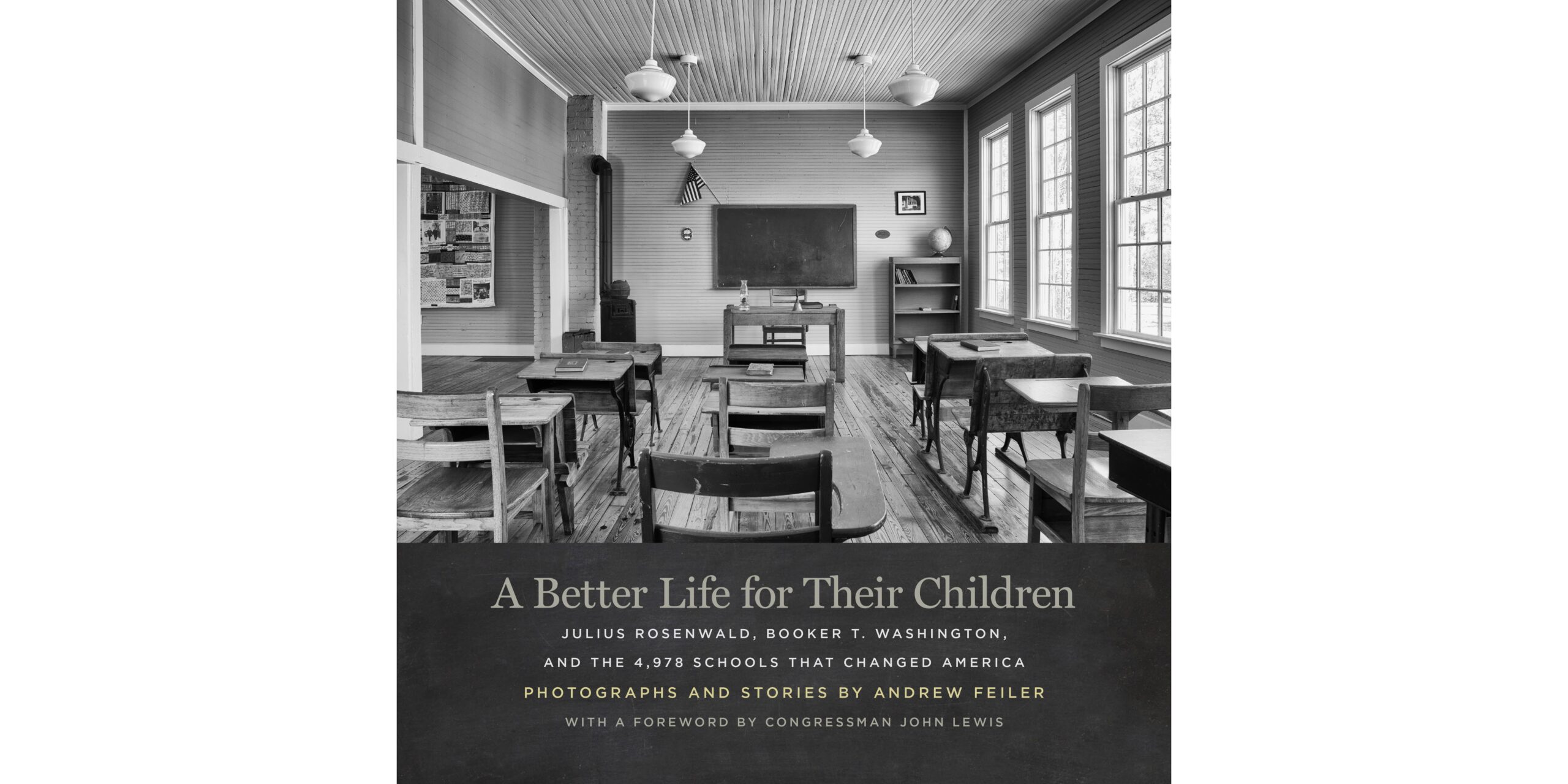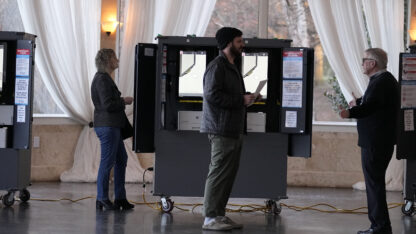‘A Better Life For Their Children’ Looks At The History Of The Rosenwald Schools

Andrew Feiler will be in conversation with former Atlanta Mayor Shirley Franklin on April 1.
Andrew Feiler
The Rosenwald Schools program is considered the most important initiative for Black education in our nation’s history. Nearly 5,000 public schools were built between 1912 and 1937 throughout the segregated South.
Though its impact was epic, the Rosenwald legacy is not widely known today.
Andrew Feiler spent 3 1/2 years photographing 105 of the remaining schools, and he gathered their remarkable stories. He compiled them into a new book called “A Better Life for Their Children: Julius Rosenwald, Booker T. Washington, and the 4,978 Schools That Changed America.”
Feiler joined “City Lights” host Lois Reitzes via Zoom to talk about the Rosenwald Schools’ history.
Interview Highlights
How the Rosenwald Schools were created:
“Julius Rosenwald rises to become president of Sears, Roebuck & Company in 1908 and leads the company until his death in 1932. He helps turn Sears into the largest retailer of his era, and he becomes one of the earliest and greatest philanthropists in American history. His cause is what later becomes known as civil rights. Booker T. Washington, born into slavery in Virginia, is one of the most prominent African American voices in the late 19th and early 20th centuries. He becomes an educator, and he’s the founding principal of the historically Black college in Tuskegee, Alabama, known as Tuskegee Institute,” said Feiler.
He continued, “The two men meet in 1911. Julius Rosenwald agrees to go on the board of Tuskegee Institute, but they keep talking about what they can do together. They come up with this idea that becomes known as Rosenwald Schools. This is before the Great Migration, so 90% of African Americans live in the South and public schools for African Americans are mostly shacks. Many jurisdictions do not even have public schools for African Americans. They form one of the earliest collaborations between Blacks and Jews, and they reach out to the Black communities of the South, and they say, ‘We want you to be a full partner in your progress, so we expect you to contribute to a school. And we will count as your contribution cash, land, materials and labor. And if you will reach out to the white school board … because we want to create white/Black dialogue as a future progress, and we want these to be public schools. So, the white school board has to own, maintain and pay for the teachers. You do those things and Julius Rosenwald will make a substantial contribution to school construction.’”
Why Feiler wanted to cover this story:
“I am a fifth generation Jewish Georgian. I have been a progressive-activist my entire life. And the pillars of this story — Southern, Jewish, progressive, activist — they’re the pillars of my life. How could I have never heard of Rosenwald Schools?! So, I came home and Googled Rosenwald Schools, and what I found was that there were a number of books on the topic, but there was no photodocumentary. So there was clearly such a direct connection between my first work [“Without Regard to Sex, Race, or Color: The Past, Present, and Future of One Historically Black College”] around the power of education, to this story, which is a very specific story of the power of education.”
He continued, “As people spend time with this book, I hope they will spend time with the images. But I hope they will take the time as well to read these stories because I think they will find them inspiring, they’ll be moved … this is a story of transformation in America, at a fundamental level.
The impact on the students:
“This program built 4,978 schools across 15 Southern-boarded states and it’s transformative to America. It’s transformative to the African American experience,” said Feiler.
He continued, “These schools not only fundamentally changed the landscape of African American education, they fundamentally help create the leadership soldiers of the movement to come.”
Leaders such as the late Congressman John Lewis, poet Maya Angelou and Pulitzer Prize-winning Washington Post columnist Eugene Robinson, are just some of the alumni of Rosenwald Schools.
The author will be in virtual conversation with former Atlanta Mayor Shirley Franklin on April 1 at 7 p.m. — an online event from the Atlanta History Center.
*Disclaimer: Feiler is Board chair of Public Broadcasting Atlanta








